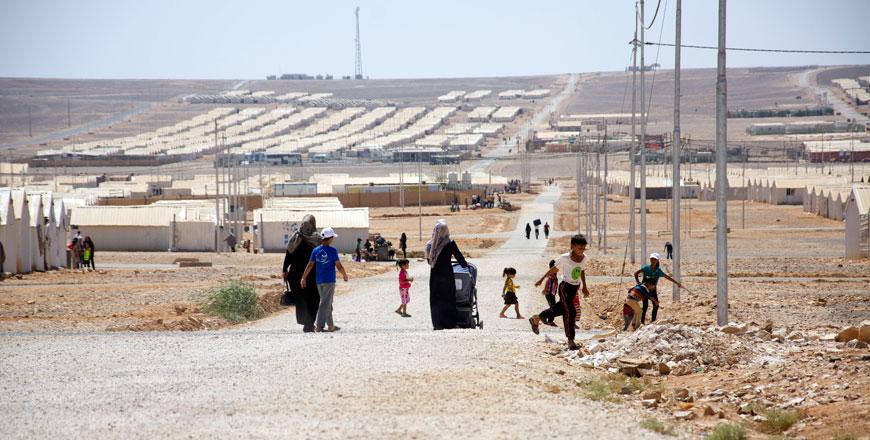You are here
'Only 6 per cent of Jordan Response Plan funded for 2019'
By Elizabeth Turnbull - Aug 19,2019 - Last updated at Aug 19,2019
AMMAN — The Jordan Response Plan, a critical factor in helping the Kingdom handle the economic strain resulting from helping those displaced by the Syrian crisis, is only 6.13 per cent funded for the year 2019, according to data released by the Ministry of Planning and International Cooperation, August 4.
Of the roughly $2.4 billion requested under the plan, funding has reached only $147 million, meaning any deficit resulting from this lack of funding is shouldered by the Jordanian government, thus contributing to national debt and reducing the quality of living for Jordanians and Syrians in the country, according to the 2019 Jordan Response Plan.
"Failing to receive sufficient funding for the projects would increase pressure on Jordan’s financial budget which is already suffering from the consequences of the Syrian crisis," economist Mazen Irsheid told The Jordan Times on Monday.
Objectives of the plan include meeting the immediate humanitarian and protection needs of Syrian refugees, improving the ability of local, regional and central authorities to coordinate, plan and implement the development response to reduce the impact of the crisis and maintaining the service delivery system, according to the 2019 Jordan Response Plan.
While the Kingdom waits for funding, there are few ways for the country to make up such need in the meantime as Jordan struggles with high levels of debt and unemployment, according to Irsheid.
"Actually, there are not a variety of funding alternatives left that Jordan has not used," Irsheid said. "In recent years, the only effective method Jordan has used to raise its funding resources came from a mixture of rising taxes, lifting subsidies, and external borrowing."
Of the money funded, 1.8 per cent of the need for budget support has been provided, 8.6 per cent of funding required for refugees has been provided, and 9.8 per cent of the funding requested for resilience has been delivered under the plan, according to the Ministry of Planning and International Cooperation.
The country which has contributed the largest amount of money to the plan is Germany, with a contribution of more than $32 million, followed by the US' contribution of $14 million, and Canada's contribution of $13 million, according to the Ministry of Planning and International Cooperation.
Outside of individual countries, multilateral funds provided the greatest amount of funding to the plan, $42 million, of which $10 million was designated to budget support, according statistics provided by the Ministry of Planning and International Cooperation.
Of the total funding received under the plan, $63 million are allocated to health, $46 million to livelihoods, $23 million to education and $10 million to social protection, among other things, according to the Ministry of Planning and International Cooperation.
Economist and investment consultant Wajdi Makhamreh believes the government should do more to lobby the international community to contribute to the plan.
"The low percentage of donations will continue to have a negative impact on the economy and on the economic growth for Jordan," Makhamreh told The Jordan Times on Monday. "I believe many financial, social and economic problems will continue to be there given that we don’t have much aid."
While Irsheid predicts contributions to the plan will increase over the second half of the year, by late December of last year, only 38 per cent of aid required for the 2018 year had been donated, according to a Jordan Times article published on December 31, 2018.
Related Articles
AMMAN — Funding for the 2019 Jordan Response Plan (JRP), aimed at helping the Kingdom overcome challenges ensuing from the Syrian crisis, ha
AMMAN — As of the first of September, the Jordan Response Plan is 8.15 per cent funded, according to the Ministry of Planning and Internatio
AMMAN — Out of 205 countries listed in the World Bank's 2018 gross domestic product (GDP) global rankings, Jordan ranks as the 91st country












